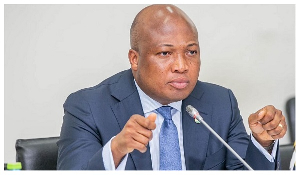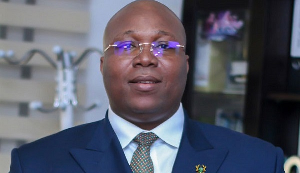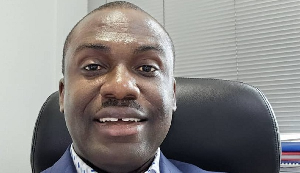Last week, the Afrobarometer report jolted us awake with its unsettling revelation: A growing dissatisfaction with democracy among Ghanaians, particularly the youth, who are increasingly open to its overthrow by force.
This alarming trend highlights the abject failure of Ghana’s political institutions to cultivate the essential political culture necessary to sustain democracy.
A participatory political culture that thrives on well-informed and actively engaged citizens is indispensable for the endurance of democratic governance. Civil society organizations (CSOs) play a crucial role in this regard by promoting political participation, advocating for good governance, educating the public, fostering civic responsibility, influencing policy, and building social cohesion.
Given these noble objectives, one must question why Imani, one of Ghana’s leading CSOs, appears to have forsaken its mandate in favor of peddling vile propaganda.
What compels Franklin Cudjoe and Imani to misinform and disinform Ghanaians rather than educate them? The Ghana Revenue Authority (GRA) is clearly an agency under the Ministry of Finance, reporting to the President through the Finance Minister, not the Ministry of Trade.
The contract with West Blue was made with the GRA, and oversight of the GRA lies
within the purview of the Ministry of Finance. Why, then, does Imani distort these facts, undermining the very political culture that sustains democracy and instead fostering a parochial culture that threatens it?
Under the leadership of Nana Addo, a parochial political culture has taken root in Ghana, permeating even the supposed vanguards of our democracy. It is evident that Imani, once a crusader for democracy, has been tainted by this familial spirit of self-interest, pushing agendas that serve personal interests rather than the national good.
This troubling reality underscores the urgent need for a profound shift in values, not only among the political elite but also within the institutions tasked with nurturing our democratic culture.
Imani must undertake serious introspection and renew its commitment to Ghana,
resisting the lure of personal gain that runs contrary to the country’s interests. The call for change is clear: we must all, especially those entrusted with shaping our political culture, rise to the challenge of building a democracy that truly serves the people of Ghana.
Opinions of Wednesday, 31 July 2024
Columnist: Andrew Appiah-Danquah















